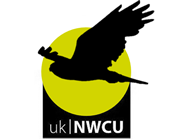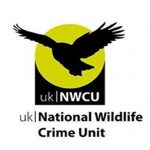Commissioned by the Home Office, RUSI’s report finds that despite the UK’s leading international role as an advocate against illegal wildlife trade, it has failed to treat the crime as a domestic priority
The UK is a leading international advocate of the need to ‘follow the money’ generated by the illegal wildlife trade (IWT).
In June 2021, the G7 2030 Nature Compact committed leaders to halt and reverse biodiversity loss by 2030. Signed under the UK’s presidency, the pact committed G7 Minsters to improving the enforcement response to money laundering linked to IWT and other environmental crimes.
In light of this commitment, the Home Office commissioned RUSI to lead the first ever independent assessment of the UK’s domestic enforcement record, drawing on previously unavailable data.
The report finds that the UK has a strong record of supporting action on the financial aspects of IWT internationally. Established in 2014, the UK’s IWT Challenge Fund has committed over £34 million to 109 counter-wildlife trafficking projects in over 50 countries – several with a specific focus on improving public-private sector coordination and increasing financial investigation skills.
Yet despite promoting practical action abroad, the crime is not treated with the same seriousness at home, with limited domestic enforcement outcomes and with parallel financial investigations rarely pursued in relevant UK cases.
The report finds, for example, that the UK has a highly limited understanding of its role in laundering the proceeds of IWT.
While law enforcement has clear processes in place to determine national wildlife crime priorities, there is no IWT-specific UK threat assessment or accurate understanding of the scale of proceeds laundered in the UK.
Notably, inadequate distinction is made between the movement of IWT products and proceeds – given that the latter may touch the UK, as a global financial centre, independent of physical movements of goods.
As corroborated by a UN report released in December 2021, the vast majority of seizures made by UK Border Force end with no further action, and the seized materials destroyed.
The problem is not one of inadequate legislation: the UK has a strong legal toolkit to prosecute IWT offences, and all the powers necessary to tackle associated economic crimes such as money laundering.
Yet according to previously unavailable data, only 41 IWT prosecutions led to a conviction under the Control of Trade in Endangered Species (COTES) Act between January 2016 and July 2021. Offenders were mainly issued with financial penalties, followed by suspended sentences.
The report also finds that suspicious activity reports filed by the private sector are virtually unused as a source of intelligence in IWT cases in the UK.
In 2018, the Royal Foundation established the United for Wildlife Financial Taskforce, with over 40 global financial institutions pledging to increase efforts to identify and reporting suspicious financial flows relating to IWT. Nonetheless, financial institutions claim that public-private sector information sharing in the UK remains very limited.
Generally, asset confiscation powers are also underused, with very small amounts recovered. Only 6 of the 41 COTES cases led to a conviction under Proceeds of Crime Act 2002. And amounts recovered peaked at £108,997 in 2017, only to decline to just £2,455 in 2020.
The Home Office has pledged over £700,000 in additional resourcing to build financial investigation capacity in the UK’s National Wildlife Crime Unit. However, the unit ultimately relies on frontline police forces to initiate investigations. The willingness of the National Crime Agency and other partners do so will remain limited without the high-quality threat assessment needed to justify a focus on IWT.
To address the gap between the UK’s call for financial action against IWT abroad and its record at home, RUSI’s report advances a set of recommendations.
These range from the need to conduct an official national IWT threat assessment, to providing incentives for a more rigorous application of financial investigation powers and improving public–private sector cooperation. The report also calls for a detailed evaluation of sentencing, a review of investigations that fail to result in appropriate charges, and an improved collection of criminal justice statistics on IWT cases.
These recommendations should be central to the next version National Police Chiefs’ Council (NPCC) Wildlife Crime Policing Strategy, due this year.
Alexandria Reid, RUSI Research Fellow, said: ‘Our report shows the UK government must take its own advice on prioritising illegal wildlife trade cases. We cannot tackle climate change and
biodiversity loss until we address the role the UK financial system plays in laundering the vast profits made by criminals engaged in environmental crime.’
Chief Inspector Kevin Kelly, Head of the National Wildlife Crime Unit, said: ‘Today is a huge step forward as we’re getting wildlife crime and the illegal wildlife trade viewed for the serious and significant crime type that it is. IWT is often closely linked to traditional serious and organised crime types if we look hard enough and the exploitation of animals is a global concern. It’s working with the likes of RUSI who help us get what we see in the operational field into the eyes of the governments and the public. I welcome this report and look forward to working with RUSI in the future as we fight against wildlife crime.’
The report can be found here





